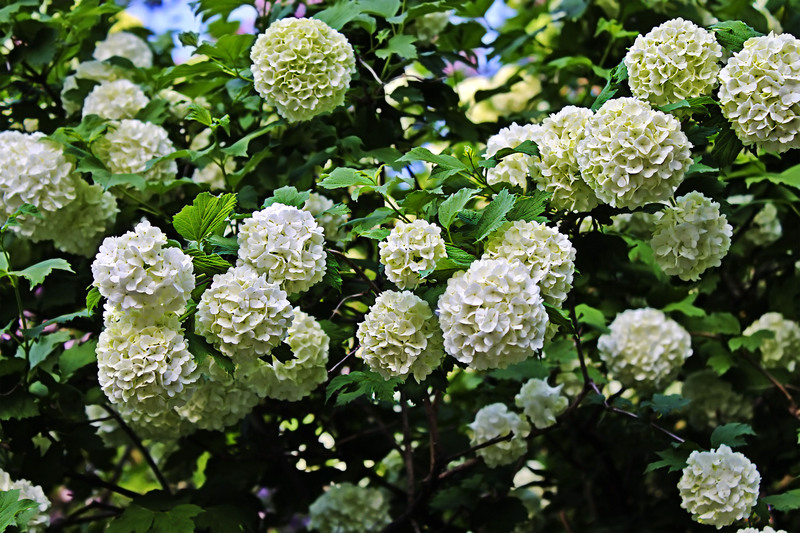Discover the 3 Key Tips for Unbeatable Weed Management
Posted on 13/08/2025
Discover the 3 Key Tips for Unbeatable Weed Management
Weed management is one of the most persistent and challenging aspects of maintaining healthy landscapes, gardens, and agricultural fields. Whether you are a professional farmer, a home gardener, or a landscape enthusiast, controlling invasive plants and stubborn weeds is essential for the prosperity of your crops and the aesthetics of your environment. In this comprehensive guide, you'll unlock the secrets to unbeatable weed control with three expert-endorsed strategies.
Why Is Effective Weed Management So Crucial?
Before diving into our three key tips, it's vital to understand the importance of robust weed prevention and management. Weeds are more than unsightly; they can:
- Compete with desired plants for nutrients, sunlight, and water.
- Host pests and diseases that threaten your crops or garden plants.
- Reduce crop yields and lower the quality of produce.
- Increase maintenance time and costs.
Efficient weed management strategies help create thriving landscapes, healthy gardens, and fertile fields. Now, let's explore the top three techniques renowned for their effectiveness and sustainability.

Key Tip #1: Implement an Integrated Weed Management Plan
When it comes to comprehensive weed management, one single approach rarely works for long. Integrated Weed Management (IWM) involves combining varied methods, each targeting weeds at different growth stages or exploiting their weaknesses. Here's how you can develop an unbeatable plan:
1.1. Mechanical and Physical Controls
- Hand Pulling: Perfect for small gardens or early infestations. Always extract the roots.
- Hoeing and Tilling: Disrupt annual weeds before they set seed, but beware not to damage wanted plants.
- Mulching: Apply organic or landscape fabric mulch to suppress light and inhibit weed germination.
1.2. Cultural Controls and Smart Planting Techniques
Enhance your ground cover to outcompete weeds naturally:
- Plant Density: Choose spacings that generate quick canopy closure.
- Crop Rotation: Alternate crop species to break the lifecycle of specialist weeds.
- Cover Crops: Grow green manures like clover or vetch to smother emerging weeds.
1.3. Responsible Chemical Controls
Herbicides can be part of your integrated program when used carefully:
- Pre-emergent Herbicides: Apply before weed seeds germinate to create a chemical barrier.
- Post-emergent Herbicides: Target actively growing weeds while preserving desirable plants.
- Always follow label directions and consider local restrictions regarding herbicide use.
Pro tip: Regularly rotate herbicide classes to prevent the development of resistant weed populations.
Key Tip #2: Prevent Weeds Before They Start
Prevention is always better than cure. Proactive weed management saves time, reduces dependency on chemicals, and is more environmentally sustainable. This key tip emphasizes preventive strategies that stop weeds at the earliest opportunity.
2.1. Choose Weed-Resistant Varieties and Clean Planting Materials
- Select disease-resistant vegetable and grass cultivars that suppress weed competition.
- Use certified, weed-free seeds and planting material to avoid introducing new problems.
- Check purchased compost and mulches for hidden weed seeds.
2.2. Maintain Healthy Soil and Fertility
Weeds thrive where soil is bare or stressed. By enhancing soil fertility and structure, you promote robust plant growth, giving weeds less room to invade:
- Regular addition of organic matter improves soil health and supports dense growth of wanted plants.
- Balanced fertilization prevents nutrient-deficient patches where weeds can take hold.
2.3. Strategic Mulching and Ground Covers
- Apply a 2-4 inch layer of organic mulch (wood chips, straw, leaves) to block sunlight and suffocate weed seedlings.
- Use living ground covers such as clover or creeping thyme to fill gaps and suppress weeds naturally.
- Landscape fabrics offer durable protection in garden beds and under pathways.
Bonus Tip: Mulch not only suppresses weeds but also conserves water, moderates soil temperature, and improves soil structure over time!
Key Tip #3: Stay Consistent with Regular Monitoring and Prompt Action
Even the best plans will lapse without consistent oversight. Routine monitoring combined with timely intervention is the secret to unbeatable weed management. Here's how to stay ahead of the curve:
3.1. Inspect Frequently and Early
- Walk through your property weekly in the growing season to spot new infestations.
- Pay extra attention to paved edges, fence lines, and shaded areas where weeds are quick to colonize.
- Identify and target problem species before they flower or set seed.
3.2. Take Immediate Action Against Invaders
- Prompt removal of young weeds is much easier and more effective than tackling established ones.
- Keep your weeding tools ready for swift and convenient action.
- For persistent perennial weeds, dig out roots or apply spot treatments as needed.
3.3. Record and Review Your Weed Management Results
An often-overlooked approach, keeping records helps you build a long-term, unbeatable strategy:
- Document outbreaks, treatments, and their results in a garden journal or field log.
- Review annual trends to adjust your integrated management plan.
- Refine your methods each season for ever-improving weed control.
Additional Strategies for Advanced Weed Control
Beyond the above key tips, consider supplementing your efforts with these advanced options:
Flame Weeding and Thermal Treatments
- Flame weeders scorch annual weeds safely.
- Hot water or steam treatments offer organic control for paths and driveways.
Biological Controls
- Introduce natural enemies such as certain insects or grazing animals in large landscapes.
- Encourage native, competitive vegetation to naturally dominate weedy invaders.
Solarization
- Cover infested soil with clear plastic in full sun for 4-6 weeks to kill weed seeds and roots.
Common Weeds and Targeted Management Tips
Knowing your enemy is half the battle. Here are solutions for common persistent weeds:
- Dandelions: Hand dig or use a weeding knife to extract the deep taproot before flowering.
- Crabgrass: Apply pre-emergent herbicide in early spring or maintain dense lawn cover.
- Bindweed: Repeatedly remove growth and exhaust the root system or spot-treat with systemic herbicides.
- Canada Thistle: Mow before seed set and spot treat or dig taproots in early summer.
Frequently Asked Questions about Weed Management
What is the best natural way to control weeds?
Non-chemical options such as mulching, hand-pulling, and dense ground cover plantings are highly effective and eco-friendly.
How often should I check for weeds?
Conduct inspections once a week during the peak growing season to catch and remove weeds early.
Is it better to pull weeds or spray them?
Hand pulling is safest for small gardens and certain weed types. For larger or persistent infestations, integrated management including targeted herbicide use may be appropriate.

Your Complete Weed Management Checklist
- Develop a customized integrated weed management plan.
- Regularly apply mulch and monitor plant health.
- Inspect weekly and act on small problems before they escalate.
- Rotate crops and ground covers for lasting weed prevention.
- Document your results and adapt each year.
Conclusion: Master Unbeatable Weed Management with These 3 Key Tips
By following these three essential tips--integrated weed management, proactive prevention, and consistent monitoring with quick action--you'll be well-equipped to outsmart and outlast weeds in any garden or landscape. Remember, successful weed management is a continuous process rather than a one-time fix. Incorporate these strategies into your regular routine, adapt your approach as needed, and enjoy healthy, beautiful, weed-free outdoor spaces for years to come!
Stay connected for more expert advice on sustainable gardening and unbeatable weed control. Happy gardening!
```Latest Posts
Garden Design Tips for Dog Lovers and Green Thumbs
Artistic Expressions with Custom Hedge Trimming Styles
Comprehensive Orchid Care for Beginners

